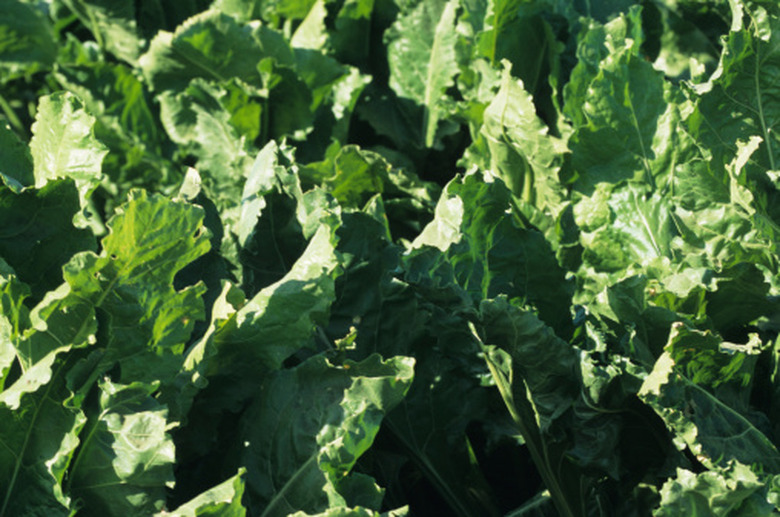What Can I Put On The Turnip Greens In My Garden To Keep The Bugs Off?
Tender turnip greens are for some a well-kept garden secret. While chard and kale are popular greens in the garden, some people are devoted to other greens such as mustard, beet or turnips. Healthy greens are not only delicious on the dinner table, they're important to the health of the whole plant. Turnips are prey to a number of pests and require careful attention to keep them free of insects. It is worth protecting turnip greens — they are high in vitamins E and C, have usable calcium, folate and a full range of amino acids.
Common Pests
Turnips and other greens are especially bothered by several insect pests. Aphids are a number one culprit. They suck the sap from the plant. Cabbage loopers love turnip greens just as you do. Flea beetles can be a major problem. Take the time to learn what these turnip pests look like and how to spot the adults and larvae. This will give you an idea where to target your approach to getting rid of them.
Garden Health
Prevention is always the fist line of defense when it comes to any garden pests. Keep weeds away from your plants to reduce habitat for insects. Insects are interdependent, so if one type is encouraged by weeds or other foods they may like, the ones who prefer leafy greens may move in too. Keep the ground free of dead and dying plants and rotted vegetables to reduce their food. Keep your turnips well nourished with rich compost because healthy plants have more resistance to pests.
Beneficial Insects
Introducing beneficial insects to the turnip bed can reduce the population of harmful insects. Examples of these are ladybugs, green lacewings and beneficial nematodes. You can purchase them at some garden centers or through an online distributor. These are predator and parasitic insects that can help you battle the undesirable bugs on your turnip greens. Make your garden attractive to them by providing other foods they like such as flowers for nectar.
Synthetic Pesticides
The synthetic pesticides for turnips include spinosad, whose makers claim it has low environmental impact, long residual effect and is no harmful to beneficial insects. For aphids or whiteflies use pymetrozine. It is a direct spray specifically for this type of bug and can kill them quickly.
Natural Insecticides
Turnips can be benefited by an interplanting of some other plants. These discourage insects that target turnips. They include mint, onions and garlic or herbs like anise, chives and coriander. You can also combine household products to create a useful natural pesticide. A homemade horticultural oil can be made from soybean oil mixed with liquid dish-washing soap to suffocate the bugs. Some people simply spray them off with a hose. But if you do this, make sure to also remove them from the ground beneath the plant. Purchase diatomaceous earth at a garden center to dust on plants to deter aphids.
